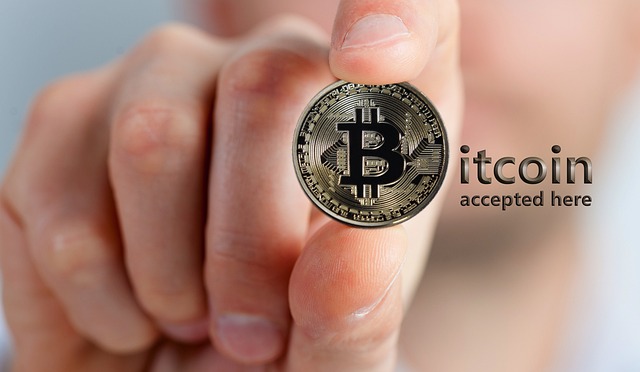Unlocking the Mission of Decentralized Finance Companies
Unlocking the Mission of Decentralized Finance Companies

What is Decentralized Finance?
Decentralized Finance, also known as DeFi, is an emerging concept that has been gaining significant attention in recent years.

One of the key characteristics of decentralized finance is its open and inclusive nature. Anyone with an internet connection and a digital wallet can participate in DeFi platforms and utilize various financial services such as lending, borrowing, trading, and investing. This accessibility is particularly beneficial for individuals who are unbanked or underbanked, as it eliminates the need for a traditional bank account. Moreover, decentralized finance presents new opportunities for innovation and financial empowerment, allowing individuals to have greater control over their own assets and financial decisions.
The Advantages of Decentralized Finance Companies
Decentralized finance companies offer a range of advantages that have the potential to revolutionize the financial landscape. Firstly, these companies provide greater accessibility and inclusivity to financial services. Unlike traditional financial institutions that often have strict eligibility criteria, decentralized finance companies allow anyone with an internet connection to participate. This means that individuals who may have been excluded from the traditional financial system, such as those in underbanked regions or with limited financial resources, can now access financial services and opportunities.
Secondly, decentralized finance companies offer enhanced security and privacy. By utilizing blockchain technology, these companies ensure that transactions are transparent, immutable, and resistant to fraud. The decentralized nature of these platforms also eliminates the need for intermediaries, reducing the risk of data breaches and identity theft. Users have greater control over their financial assets and can trust that their information is secure, fostering a sense of confidence and peace of mind in an increasingly digital world.
Overall, the advantages of decentralized finance companies lie in their ability to democratize financial services, making them accessible to all, and their commitment to providing enhanced security and privacy. As the world continues to embrace decentralized finance, it holds the potential to reshape the future of finance, empowering individuals and communities globally.
How Decentralized Finance Companies are Changing the Financial Landscape
Decentralized finance companies are rapidly reshaping the financial landscape as we know it. With their innovative use of blockchain technology, these entities are challenging traditional financial institutions and providing individuals with a newfound sense of financial freedom.
One of the key ways in which decentralized finance companies are changing the financial landscape is by eliminating the need for intermediaries. Traditionally, financial transactions would involve multiple intermediaries such as banks, brokers, and lawyers. However, with decentralized finance companies, individuals can directly interact with the digital platforms, cutting out the middlemen.

The Potential Impact of Decentralized Finance on Traditional Financial Institutions
Decentralized finance has the potential to disrupt traditional financial institutions in numerous ways. First and foremost, it could revolutionize the way transactions are conducted and recorded. With the use of blockchain technology, decentralized finance eliminates the need for intermediaries such as banks, making transactions faster, cheaper, and more secure. This has the potential to reduce the influence and power of traditional financial institutions, as individuals and businesses can now conduct peer-to-peer transactions without relying on centralized authorities.
Furthermore, decentralized finance opens up new avenues for financial inclusion. Traditional financial institutions often have strict criteria and requirements that exclude a significant portion of the population from accessing financial services. However, with decentralized finance, anyone with internet access can participate in financial activities, regardless of their location or socio-economic status. This could lead to greater financial empowerment for individuals and communities, as they gain access to a wider range of financial services, including loans, savings, and investment opportunities. As a result, traditional financial institutions may need to adapt and find new ways to remain relevant in this changing landscape.
Exploring the Key Features of Decentralized Finance Companies
Decentralized finance companies, also known as DeFi companies, have gained significant attention in recent years due to their unique features. One key feature is the elimination of intermediaries in financial transactions. Unlike traditional finance systems where middlemen and third-party institutions play a crucial role, DeFi companies utilize blockchain technology to facilitate peer-to-peer transactions. This allows for a more efficient and direct interaction between users, reducing costs and increasing transparency.
Another notable feature of DeFi companies is their open and permissionless nature. In traditional finance, individuals often face barriers when accessing financial services, especially in underserved communities. However, DeFi companies aim to address this issue by providing equal opportunities for anyone with internet access to participate in financial activities. This inclusivity fosters financial empowerment for individuals and communities, leveling the playing field and creating a more equitable financial landscape.
Overall, the key features of decentralized finance companies mark a departure from traditional financial systems by introducing transparency, efficiency, and inclusivity. As more people become aware of the benefits, it is expected that the adoption of DeFi will continue to grow, potentially disrupting traditional financial institutions and paving the way for a more decentralized future.
The Role of Blockchain Technology in Decentralized Finance
Blockchain technology plays a pivotal role in the realm of decentralized finance. At its core, blockchain is a digital ledger that records transactions across multiple computers. This decentralized and distributed nature of blockchain ensures transparency and immutability, making it a perfect fit for the principles of decentralized finance. By leveraging blockchain technology, decentralized finance companies are able to create a trustless and secure platform where individuals can directly interact with financial products and services without the need for intermediaries.
One of the key benefits of blockchain technology in decentralized finance is the elimination of middlemen. Traditional financial systems often rely on intermediaries such as banks, brokers, and clearinghouses to facilitate transactions. These intermediaries not only add layers of complexity but also incur significant costs. With blockchain technology, transactions can be executed peer-to-peer, bypassing the need for intermediaries and reducing fees. This direct interaction between parties not only enhances efficiency but also empowers individuals to have full control over their financial activities.
Understanding the Risks and Challenges of Decentralized Finance Companies
Decentralized Finance (DeFi) has rapidly gained momentum in recent years, offering innovative financial solutions that bypass traditional intermediaries. While there are numerous advantages to this decentralized approach, it is crucial to understand the potential risks and challenges that decentralized finance companies may face.
One of the primary challenges is the volatility and uncertainty of the cryptocurrency market. DeFi platforms often operate using blockchain technology and digital assets, which can be highly susceptible to price fluctuations. This volatility poses a risk to both investors and users of these platforms, as sudden market downturns can lead to significant losses. Additionally, the lack of regulation in the DeFi sector means that there may be limited recourse for individuals who experience fraud or malicious activities within these platforms. As a result, users must exercise caution and thoroughly evaluate the risks associated with participating in DeFi ventures.
• The volatility of the cryptocurrency market can lead to significant losses for investors and users.
• Lack of regulation in the DeFi sector may limit recourse for individuals who experience fraud or malicious activities within these platforms.
• Users must exercise caution and thoroughly evaluate the risks associated with participating in DeFi ventures.
The Importance of Transparency in Decentralized Finance Companies
Transparency plays a crucial role in decentralized finance companies. Unlike traditional financial institutions, which often operate behind closed doors, decentralized finance companies prioritize openness and accountability. This is achieved through the use of blockchain technology, which enables every transaction to be recorded and verified on a public ledger. The transparent nature of decentralized finance not only ensures that all activities are visible to participants, but also promotes trust and confidence in the system as a whole.
One of the main advantages of transparency in decentralized finance companies is that it allows individuals to have full control and visibility over their financial transactions. With traditional financial institutions, customers often have to rely on the word of the institution when it comes to their account balances and transactions. In contrast, decentralized finance companies provide users with direct access to the blockchain, allowing them to verify and validate transactions themselves. This empowers individuals to take ownership of their financial activities and eliminates the need for intermediaries, thereby reducing the risk of fraud or manipulation. Overall, transparency is a fundamental pillar of decentralized finance, enabling individuals to have greater control and trust in the financial system.
How Decentralized Finance Companies are Empowering Individuals and Communities
Decentralized finance companies have emerged as a beacon of hope for individuals and communities, providing them with greater autonomy and control over their financial lives. By leveraging blockchain technology, these companies are empowering individuals to conduct financial transactions without the need for intermediaries or centralized authorities. This translates into lower transaction costs, faster settlements, and increased accessibility, particularly for those who have been excluded from traditional financial systems.
One of the key ways in which decentralized finance companies are empowering individuals and communities is through financial inclusion. Many people around the world, especially in developing countries, lack access to basic financial services such as banking and loans. By harnessing the power of blockchain, decentralized finance companies are providing individuals with the opportunity to access financial services and participate in the global economy, regardless of their location or socio-economic status. This not only bridges the gap between the haves and the have-nots but also promotes economic growth and uplifts entire communities.
The Future of Decentralized Finance: Opportunities and Possibilities
As decentralized finance continues to gain momentum, the future holds great opportunities and possibilities for this innovative sector. One of the key opportunities lies in the potential to provide financial services to the unbanked population around the world. With decentralized finance, individuals who have been excluded from traditional financial systems can now access and utilize various financial services, such as loans, savings, and investments, without the need for intermediaries or strict requirements.
Moreover, decentralized finance offers the potential for increased financial inclusion and economic empowerment. Through the use of blockchain technology, individuals can control their own assets, verify transactions, and participate in financial activities with greater transparency and security. This opens up new avenues for financial growth and independence, particularly for those living in developing countries where traditional financial infrastructures may be lacking. Additionally, decentralized finance has the potential to foster entrepreneurship and innovation, as individuals can access funding and capital through decentralized platforms, bypassing traditional gatekeepers and rigid investment processes. The future of decentralized finance holds immense possibilities for reshaping the financial landscape, democratizing access to financial services, and unlocking economic opportunities for individuals and communities around the world.
What is decentralized finance?
Decentralized finance, often referred to as DeFi, is a new financial system that operates on blockchain technology and eliminates the need for intermediaries like banks. It allows individuals to have full control over their financial transactions and assets.
What are the advantages of decentralized finance companies?
Decentralized finance companies offer numerous advantages, such as increased financial inclusivity, lower fees, faster transactions, and greater transparency. They also enable individuals to access financial services without the need for a traditional bank account.
How are decentralized finance companies changing the financial landscape?
Decentralized finance companies are disrupting the traditional financial landscape by providing innovative solutions for lending, borrowing, trading, and investing. They are creating more accessible and efficient financial systems that prioritize individual empowerment.
What potential impact can decentralized finance have on traditional financial institutions?
Decentralized finance has the potential to significantly impact traditional financial institutions by challenging their role as intermediaries. It could potentially reduce the need for banks and other centralized institutions, as individuals can directly transact with each other using decentralized platforms.
What are the key features of decentralized finance companies?
Key features of decentralized finance companies include open access, programmability, transparency, interoperability, and security. These features enable individuals to participate in financial activities in a decentralized and trustworthy manner.
How does blockchain technology contribute to decentralized finance?
Blockchain technology is the underlying technology that enables decentralized finance.

What are the risks and challenges of decentralized finance companies?
Decentralized finance companies face risks such as smart contract vulnerabilities, regulatory uncertainty, and potential hacking attempts. Additionally, the rapid development of DeFi can lead to scalability issues and user adoption challenges.
Why is transparency important in decentralized finance companies?
Transparency is crucial in decentralized finance because it ensures trust among participants. By providing access to transaction data and smart contract code, individuals can verify the integrity of the system and make informed decisions.
In what ways are decentralized finance companies empowering individuals and communities?
Decentralized finance companies empower individuals and communities by offering financial services to those who are underserved by traditional institutions. They provide access to loans, savings, investments, and other financial opportunities, regardless of geographical location or socioeconomic status.
What opportunities and possibilities does the future hold for decentralized finance?
The future of decentralized finance is filled with exciting opportunities. It has the potential to revolutionize financial systems, improve financial inclusion, and enable innovative financial products and services. As adoption grows, we can expect to see even more possibilities for decentralized finance in various sectors of the economy.
Todays Featured Product:
Buy, exchange and grow your crypto securely with a Ledger hardware wallet, combined with the Ledger Live app. It’s never been easier to keep your crypto safe and accessible. Buy direct from Ledger.com and get todays Special Offers Here.




